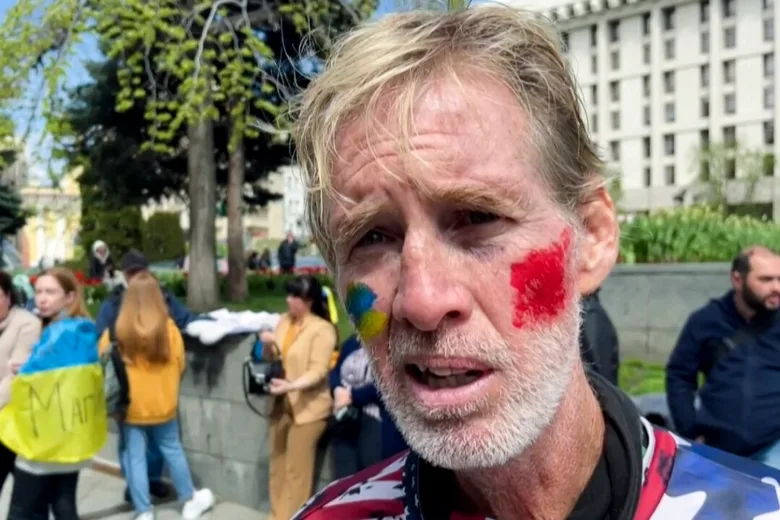By Jacob Burg and Sam Dorman
FORT PIERCE, Fla.—The trial of Ryan Wesley Routh, who is charged with the Sept. 15, 2024, attempted assassination of then-presidential candidate Donald Trump, has begun in Florida amid growing concerns about politically motivated violence in the United States.
Routh, who is representing himself, and Assistant U.S. Attorney John Shipley offered opening arguments on Sept. 11 before hearing from a Secret Service agent, who testified that he confronted Routh at Trump’s golf course in West Palm Beach, Florida, in September 2024, just weeks before the presidential election.
Shipley’s opening argument laid out his findings regarding Routh’s preparations for the alleged assassination attempt, including allegedly traveling to Florida, using various aliases, using encrypted communications, and purchasing a firearm. The case, he said, is not about whether the jury likes Trump or not but whether an attempt was made on Trump’s life.
“Routh wanted to make sure the people of this country could not reelect Trump,” he said.
Opening arguments began nearly a year after the incident on Sept. 15, 2024, and just a day after the assassination of conservative commentator and Trump ally Charlie Kirk. It followed a lengthy pretrial period in which Routh decided to represent himself and submitted bizarre court documents, such as one requesting to subpoena Trump and suggesting a golf match with the president that would end with either Routh dying or becoming president himself. Jury selection took place earlier in the week.
On Sept. 11, Routh, wearing a gray blazer, white shirt, and tie, could be seen smiling often in the relatively small courtroom. According to his indictment, among other things, he has been charged with an attempted assassination of a presidential candidate and faces years in prison. In 2024, he pleaded not guilty.
At the end of Shipley’s arguments, Routh smiled and winked in the direction of the area where reporters were seated. For his opening arguments, he stood at a podium in the middle of the courtroom and offered an unusual statement about the value of intent. Modern courts, he suggested, lack perspective about individuals’ humanity.
“Intent is the whole of who we are,” he told the jury. He went on to make other remarks ranging from comments on the history of the human species to comments about various modern political leaders.
District Judge Aileen Cannon of the U.S. District Court for the Southern District of Florida interjected, dismissed the jury, and admonished Routh, telling him to focus on evidence surrounding the trial.
“What I’ve heard thus far is nothing of the sort,” she said.
She also said that she would not let him make a “mockery” of the dignity of the courtroom.
Routh said his whole argument is about “gentleness and nonviolence.”
The jury, which was seated to Routh’s left, eventually returned. Routh then gave a vague monologue about U.S. history before Cannon again cut him off and told him that his statements were not relevant to the evidence of the case.
Evidence and Testimony
After Routh’s opening argument, he and Shipley took turns questioning Secret Service agent Robert Fercano, who identified Routh in court as the person he saw in the bushes at Trump International Golf Club in West Palm Beach in September 2024.
Fercano, whom Shipley described as a hero, described how he did a visual scan of the golf course and noticed abnormalities along the fence, including a rifle barrel and bulletproof shielding on either side of the barrel. The site, Fercano said, was reminiscent of a military turret surrounded by shielding. Fercano described confronting Routh and shooting in his direction with his service weapon. The prosecution also played audio of Fercano saying shots were fired.
At one point during testimony, Fercano held the firearm he said Routh had with him and said it was the same one he saw in the tree line near the fence. The ammunition involved could have pierced the human body, and Secret Service armor would not have offered sufficient protection, he said.
Routh began his relatively brief cross-examination by asking Fercano whether it was good to be alive and proceeded with questions about Fercano’s actions and view of the scene that day. After Routh asked whether Fercano was scratched that day, Fercano said he was not physically hurt but that ever since he has had to live with knowing that a gun was pointed at him.
One of the pieces of evidence is a “Dear World” letter that Routh allegedly dropped off at a residence before the alleged assassination attempt.
It states in part, “This was an assassination attempt on Donald Trump but I am so sorry I failed you.”
Routh had attempted to introduce additional portions of that letter to the trial, as well as two other letters he authored. In a Sept. 2 request to Cannon, Routh said one of the letters would show “gentleness” and “peacefulness.”
Cannon rejected requests to admit two letters, which the court described as hearsay. She also chastised Routh’s attempt to subpoena Trump.
In 2024, Routh’s defense attorney at the time raised the prospect of an insanity defense, stating that witnesses had described Routh as hallucinating and delusional. That defense was eventually discarded.





